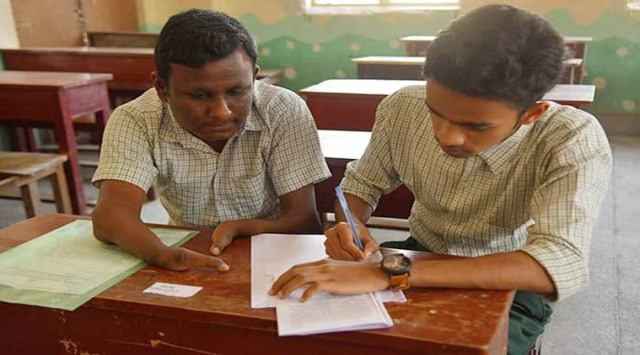Centre cracks down on misuse of scribes in exams for disabled candidates
By | Education | 04-Sep-2025 17:54:18

News Story
In a sweeping reform aimed at restoring integrity to public examinations,
the Centre has overhauled the rules governing the use of scribes by persons
with disabilities (PwDs). The new framework, issued by the Ministry of Social
Justice and Empowerment, mandates examining bodies to create their own vetted
pools of scribes within two years—phasing out the widely misused “own scribe”
system that authorities say has been riddled with malpractice.
The rules apply to all competitive written
exams linked to government jobs and admissions in professional or technical
courses. They align with the Rights of Persons with
Disabilities Act, 2016 and the Public
Examination (Prevention of Unfair Means) Act, 2024, as well as
Supreme Court directives on equal opportunity.
Authorities including the UPSC, SSC, and
National Testing Agency have long flagged cases where privately arranged
scribes colluded with candidates—sometimes even writing answers independently
without dictation—undermining fairness and transparency.
“Inputs from responsible bodies like UPSC and
DoPT identified the ‘own scribe’ provision as a significant vulnerability in
safeguarding exam integrity,” the ministry said in its notification.
Technology over dependence
The guidelines stress encouraging PwD
candidates to attempt exams independently using assistive technologies such as
screen readers (JAWS, NVDA), speech-to-text software, Braille, large print,
recording devices, or software-enabled laptops. Officials argue this approach
not only reduces malpractice but also prepares candidates for professional
environments where independence is essential.
Until official scribe pools are ready,
candidates may bring their own scribes only as a last resort and only for a
limited transition period of two years.
Stricter eligibility, stronger safeguards
The eligibility of scribes has also been
tightened. They must have qualifications two to three academic years below the
exam requirement, cannot appear for the same exam, and must have no conflicts
of interest.
Other key provisions include:
·
Compensatory time:
At least 20 minutes per exam hour for candidates with functional writing
limitations.
·
Accessible exam centres:
Mandatory ramps, lifts, wide corridors, audio announcements, ground-floor
seating, and special quiet rooms for neurodiverse candidates.
·
Training & grievance
redressal: Exam staff will undergo disability-sensitivity
training, invigilators will be sensitised annually, and grievance systems will
be in place.
·
Data protection:
All candidate records will be safeguarded under the Digital
Personal Data Protection Act, 2023.
Examination bodies must also collect feedback
on scribe quality, provide incentives for empanelled scribes, and strictly
penalise malpractice by candidates, scribes, or officials.
By embedding accessibility with accountability, the Centre hopes to make competitive exams not only more inclusive but also immune to the misuse that has eroded trust in the system.